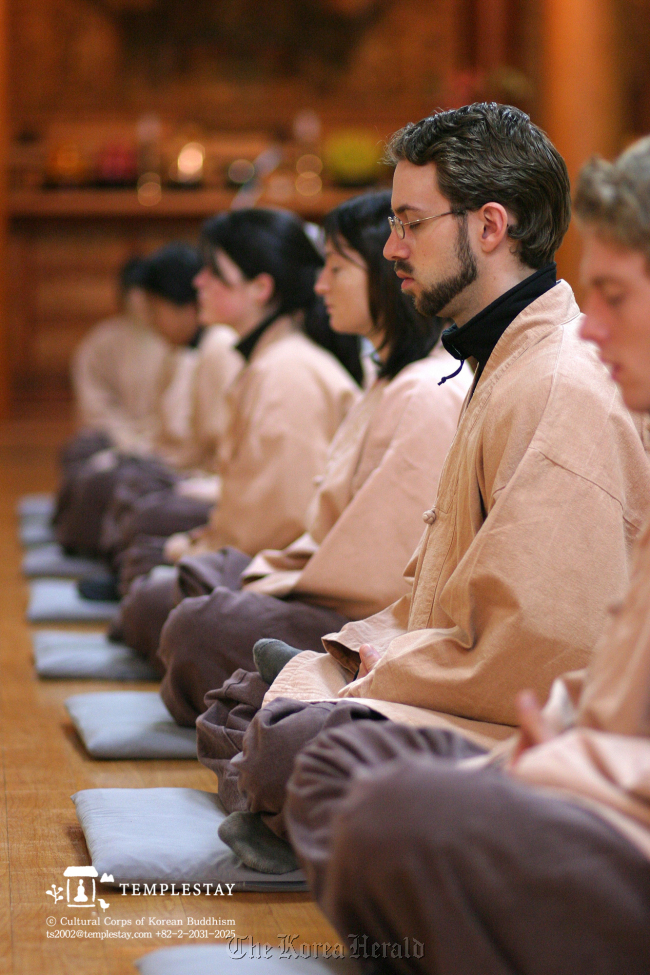
Templestay participants meditate. (Courtesy of Cultural Corps of Korean Buddhism)
After a decade of success, operators of the Templestay program are seeking to offer programs that are more intimate and “current” for people seeking Zen meditation, early-morning chanting and the serenity that the program provides.
On Oct. 31, the Jogye Order of Korean Buddhism will celebrate the 10th anniversary of the Templestay program that has attracted nearly a million people by kicking off what it calls “Templestay Season 2.”
“It has been a good 10 years. Templestay has become a brand of Korean tourism and I feel it so whenever I run into people praising Templestay outside of Korea,” said Ven. Beopjin, head of the Cultural Corps of Korean Buddhism, an organization under the nation’s largest Buddhist order.
“In our Season 2, we will join hands with international travel agencies and host more foreign visitors. We will specify our program according to age, familiarity with the program and other considerations. We will develop the event into a Buddhist cultural campaign,” he added.
The organization will also put more effort into promoting temple cuisine, developing relevant Buddhism cultural content and creating a reservation network.
Ven. Beopjin’s comments came after the Buddhist leaders concluded that a more familiar and intimate approach will be needed to have more people visit Buddhist temples around the country and get a glimpse of Buddhist and Korean lifestyle.
According to the organization, a total of 972,633 people, including 131,008 foreign nationals, as of July have participated in Templestay programs that normally involve more than a one-night stay. The program has grown at an average rate of 22.5 percent.
Many visitors expressed their satisfaction with the program. Of 7,037 Koreans and 880 foreigners surveyed last year, 83.5 percent said they were satisfied with Templestay and 73.2 percent of them said they would like to revisit the program.
“Some of our in-depth interviewees said that they were able to shed all the burdens of the outside world and feel free. The program seemed to be effective for people who are experiencing difficulties in life. Through meditating and conversing with the monks, they tend to soothe themselves,” said Park Yong-kyu, an official of the Templestay organization.
“The participants also liked making lanterns and Buddhist rosaries. They were fond of bowing and eating Buddhist vegetarian foods. They all represent wellbeing, laidback and self-reflective activities,” he added.
“Templestay is not the only way but the most effective way for Buddhism to communicate with ordinary people. It is also our social responsibility and function to the Korean society. Templestay should be all about the comfort and happiness of humankind,” he said.
By Bae Ji-sook (baejisook@heraldcorp.com)






